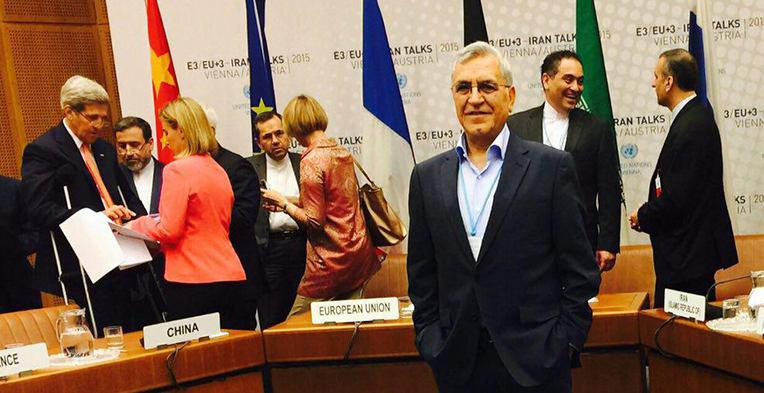Iran’s judiciary and Intelligence Ministry are quarreling over nuclear espionage within the Islamic Republic.
The dispute between the two factions has been sparked by the judiciary’s sentencing of Abdolrasoul Dorri Esfahani (pictured), a member of the team that negotiated the July 2015 nuclear agreement, to five years in prison.
On Wednesday, Intelligence Minister Mahmoud Alavi again rejected the accusations against Esfahani, saying that he was cooperating with the counterespionage department of the Ministry. Alavi said, “The only professional reference for discernment of espionage activities in the Islamic Republic is the department of counterespionage run by the deputy of the Intelligence Minister”.
The judiciary-affiliated website Mizan hit back on Thursday, saying only the judiciary — led by the hardline Sadeq Amoli Larijani — can determine who is a spy:
The only competent authority to convict or acquit people accused of spying is the court of law. Based on a final verdict, Dorri Esfahani has been convicted and sentenced for espionge.
There is no law stipulating that the Intelligence Ministry is the sole authority responsible for certifying or rejecting that an act of espionage has taken place, or who is guilty of spying, who is not.
Citing its unnamed sources, Mizan said, “There have already been legal cases that the courts of law have disagreed with the information provided by the Intelligence Ministry, acquitting people accused of espionage.”
Esfahani’s arrest was reported in August 2016 by Revolutionary Guards outlets, which said he was suspected of “selling the country’s economic information to foreigners”. The official was later granted bail, but his conviction was announced on Sunday.
Conservative cleric and MP Mojtaba Zolnour said Thursday that more revelations are likely: “Two other members of Iran’s nuclear negotiation team have also been accused of espionage and collaborating with foreign governments”.
He asserted, “One of the accused is living in Canada and the other has also fled Iran.”

